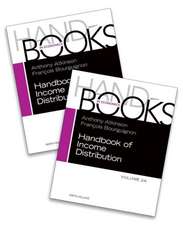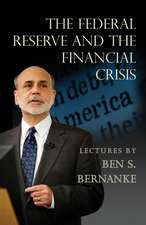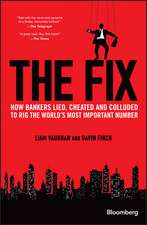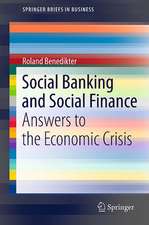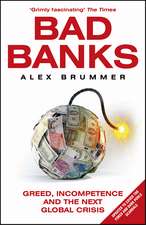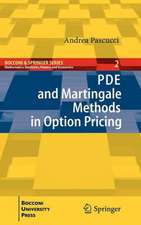Non-Expected Utility and Risk Management: A Special Issue of the Geneva Papers on Risk and Insurance Theory
Editat de Christian Gollier, Mark J. Machinaen Limba Engleză Paperback – 5 dec 2010
Non-Expected Utility and Risk Management examines whether the existing results in insurance economics are robust to more general models of behavior under risk.
| Toate formatele și edițiile | Preț | Express |
|---|---|---|
| Paperback (1) | 633.35 lei 6-8 săpt. | |
| SPRINGER NETHERLANDS – 5 dec 2010 | 633.35 lei 6-8 săpt. | |
| Hardback (1) | 638.57 lei 6-8 săpt. | |
| SPRINGER NETHERLANDS – 30 sep 1995 | 638.57 lei 6-8 săpt. |
Preț: 633.35 lei
Preț vechi: 745.11 lei
-15% Nou
Puncte Express: 950
Preț estimativ în valută:
121.19€ • 126.85$ • 100.87£
121.19€ • 126.85$ • 100.87£
Carte tipărită la comandă
Livrare economică 31 martie-14 aprilie
Preluare comenzi: 021 569.72.76
Specificații
ISBN-13: 9789048157990
ISBN-10: 9048157994
Pagini: 156
Ilustrații: VI, 150 p.
Dimensiuni: 155 x 235 x 8 mm
Greutate: 0.22 kg
Ediția:Softcover reprint of hardcover 1st ed. 1995
Editura: SPRINGER NETHERLANDS
Colecția Springer
Locul publicării:Dordrecht, Netherlands
ISBN-10: 9048157994
Pagini: 156
Ilustrații: VI, 150 p.
Dimensiuni: 155 x 235 x 8 mm
Greutate: 0.22 kg
Ediția:Softcover reprint of hardcover 1st ed. 1995
Editura: SPRINGER NETHERLANDS
Colecția Springer
Locul publicării:Dordrecht, Netherlands
Public țintă
ResearchCuprins
Introductory Note.- Non-Expected Utility and the Robustness of the Classical Insurance Paradigm.- Non-Expected Utility and the Robustness of the Classical Insurance Paradigm: Discussion.- The Comparative Statics of Deductible Insurance in Expected- and Non-Expected-Utility Theories.- Risk Aversion Concepts in Expected- and Non-Expected-Utility Models.- Government Action, Biases in Risk Perception, and Insurance Decisions.- A Comparison of the Estimates of Expected Utility and Non-Expected-Utility Preference Functionals.- Functional Form Problems in Modeling Insurance and Gambling.


